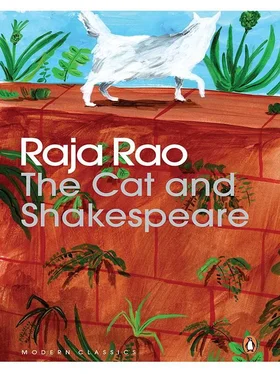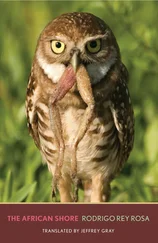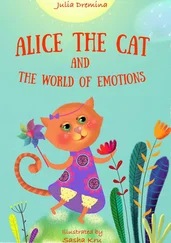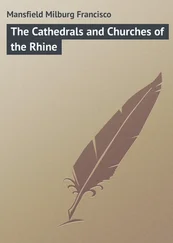Rao Raja - The Cat and Shakespeare
Здесь есть возможность читать онлайн «Rao Raja - The Cat and Shakespeare» весь текст электронной книги совершенно бесплатно (целиком полную версию без сокращений). В некоторых случаях можно слушать аудио, скачать через торрент в формате fb2 и присутствует краткое содержание. Год выпуска: 2014, Издательство: Penguin, Жанр: Современная проза, на английском языке. Описание произведения, (предисловие) а так же отзывы посетителей доступны на портале библиотеки ЛибКат.
- Название:The Cat and Shakespeare
- Автор:
- Издательство:Penguin
- Жанр:
- Год:2014
- ISBN:нет данных
- Рейтинг книги:4 / 5. Голосов: 1
-
Избранное:Добавить в избранное
- Отзывы:
-
Ваша оценка:
- 80
- 1
- 2
- 3
- 4
- 5
The Cat and Shakespeare: краткое содержание, описание и аннотация
Предлагаем к чтению аннотацию, описание, краткое содержание или предисловие (зависит от того, что написал сам автор книги «The Cat and Shakespeare»). Если вы не нашли необходимую информацию о книге — напишите в комментариях, мы постараемся отыскать её.
The Cat and Shakespeare — читать онлайн бесплатно полную книгу (весь текст) целиком
Ниже представлен текст книги, разбитый по страницам. Система сохранения места последней прочитанной страницы, позволяет с удобством читать онлайн бесплатно книгу «The Cat and Shakespeare», без необходимости каждый раз заново искать на чём Вы остановились. Поставьте закладку, и сможете в любой момент перейти на страницу, на которой закончили чтение.
Интервал:
Закладка:
‘Don’t make fun of me. Tell me seriously.’
‘I speak seriously, sir. All I say is serious. If not, would I blow my precious foul breath to the world?’ He looked almost angry. ‘Do you think I joke when I say Usha is the cause of my son’s illness? She is six years old. He is seven years old. They stood under the bilva tree and said many serious things. Did you know what they said to one another? She touched his cheek and said: ‘You are like my brother.’ And he said: ‘Father says you are my wife.’ And she became so shy, she ran away. So off he ran, Shridhar, to Shantha, and said: ‘Mother Shantha, make Usha my wife.’ He stood silent and, with closed eyes and folded hands, prayed. She said: ‘Why not when you grow up? When the koel is big it makes a nest. When the koel is big and another koel comes, they make a bed to which eggs are born. When you can build a nest, you will marry Usha.’ ‘But Usha has a house now,’ he said. ‘Can I not be married now that she has a house? And we will grow eggs.’ Usha got fever that night. She thought she was growing eggs. Next morning she went to the latrine. She was so afraid she threw off her eggs. She is all right now. Shridhar got the new disease. He does not know how to throw it off. I must buy him a house too, perhaps,’ said Govindan Nair, and was silent for a while. ‘It’s a good idea if I tell Shridhar: Shridhar, I will buy you a house also, and this might get him to feel better. When you have a house in prospect, your heart pumps good blood. Yes, that’s the trick. Thank you for the thought,’ he said, and, jumping across the wall, he was gone. Was I responsible for his thought? Was I responsible for Usha’s birth? Was I? Was Usha responsible for Shridhar’s illness? So I am the sole responsible person. Lord, where shall I go now? For I am cause.
Usha woke up in a delirium. She has been saying she wants to go to the sea. She sees big ships sail. She sees faces of men that frighten her. ‘I don’t want to go, Mother, I don’t want to go with the Dutch!’ she shrieks. Her mother always said to the children: ‘If you cry, I’ll give you away to the Dutch,’ and that’s why the child cried so. It must be strange to go in Dutch ships across the seas.
‘The fever ran high,’ said Shantha to me in the evening. Because of Shridhar’s fever, Shantha started sleeping in this house. You see, Usha bought this house (though the two instalments have yet to be paid — but the Mudali has given his heart away to Usha), so the house is Usha’s and Shantha will come, for Usha is a grown-up child, and she loves her mother, who is Shantha, for Shantha is kind, and will not talk of the Dutch. She who does not talk of the Dutch is Mother, so Mother is Shantha. And Shantha is round and will give Usha a brother. Will he be like Shridhar? Shantha says Shridhar raves all night. Ice bottles are placed on his head. Dr N.O. Pillai is an able doctor, he never does anything wrong. People live who live. Those that are taken away go away. Look at it in the hospital. Can you prevent what has to go? Tangamma has a difficult time. When her husband is unhappy he is angry. When he weeps he is happy. That, sir, is the law of kitten, he says in philosophic explanation. He has an explanation, as I told you, for everything. Usha is the cause of Shridhar’s fever, is as simple for him as the buffalo is the mother of the grey-white calf, suckling at her udder. How mysterious life is. Does one know anything?
The doctor knows. The temperature is measured with a glass instrument that speaks. Modhu, the elder son of Govindan Nair, who is always on the football field or at some decisive mischief (for he wants to be a soldier like Major General Auchinleck), cleans the thermometer and the temperature has gone up to 105 degrees. Hope is a bubble that is born in the heart. It bursts when it will. That depends on the outer air, I think. Or it is like a bad scale? It always shows you a measure according to the ration card. The rice you eat at home belongs to another measure. Hence there is famine. Hence people die.
Famine is the cause of death. Wars are the cause of murder. Imperialism is the cause of slavery. Sri Krishna is the cause of Mahatma Gandhi. Lord, how can man be free from birth and death? Why should death come to our door?
But Shantha is all apprehensive. What if death came not to the next door but to mine — to Usha, I mean? She prayed therefore there should be no death.
But I ask of you, Will death come and say: May I come, sir, dear sir? What is death to a kitten that walks on the wall? Have you ever seen a kitten fall? You could fall. I could fall. But the kittens walk on the wall. They are so deft. They are so young. They are so white. The mother cat watches them. And when they are about to fall, there she is, her head in the air, and she picks you up by the scruff of your neck. You never know where she is. (Who has ever seen her? Nobody has.) To know where she is, you have to be the mother’s mother. And how could that ever be? Mother, I worship you.
The bamboos were already in the courtyard. Death had come. It spoiled the nice courtyard, with flowerbeds of roses.
I never went across the wall. How could I? I could hear Tangamma weep, then Govindan Nair said something. Dr N.O. Pillai is such an able man. He walked out of the house efficiently. It was a bad case, he said. His Gladstone bag was so knowledgeable. It contained mysterious instruments that spoke. Death is such speech? Tangamma did everything as if she were sleeping. She did not weep any more. Modhu wept and wept. He had lost his only brother.
Where is Shridhar gone? Where is my friend gone? Usha walked with me, erect and tearless, holding my hand, to the cremation ground. It was decided to burn him though he was only seven. Usha thought it a grand thing to be burned. It made you see your heart. ‘Father, where has Shridhar gone?’ ‘Daughter, he has gone to build a house.’ ‘Father, where shall we go?’ ‘Daughter, where there is a house.’ ‘Father, what is death?’ ‘Daughter, it’s like the clock tower of the Secretariat. It chimes time.’ ‘Father, what is life?’ ‘Daughter, it is where no flame can burn.’ ‘Father, where is that?’ ‘Daughter, I do not know. Ask Govindan Nair.’ ‘Father, what is marriage?’ ‘Daughter, it is when I give you to God.’ ‘Father, when will you give me to God?’ ‘Daughter, tomorrow.’
Somehow after Shridhar died Usha stayed on with me. There must always be a kitten on the wall.
Shantha, more and more, came to live with me. The child would soon come. It will be a son. It will be a brother. Usha was going to have a brother. She told her school — now she went to the convent school — that she was going to have a brother. They said: Where is your mother, then? She said: Here. Where do you come from, then? Did you not say you came from Alwaye? She said: Yes. That was my mother’s house. This is my house. My brother will be born in my house. And the schoolgirls thought: What a wonder! Can one have a little brother so easily? Usha’s brother will be very beautiful.
The Belgian sisters did not speak of brother’s mother. So she wondered why God made some people with speech and others who, talking, had no speech. Only some have brother, and that is the truth, she said to herself, as she entered her arithmetic class.
About three or four weeks later, at the end of September it was — no, in fact at the end of August, for the rains have not ended yet, and the Dussera 12not yet there — one morning Govindan Nair was arrested at his house. He was arrested on a charge of bribery — a yellowed and much greased document was produced to prove that from some old lady in Vulzehavannoor, three miles from Kurtarakara, he had taken a sum of rupees one hundred and nine. She had a son who ran a ration shop. It could not be more explicit, according to Police Inspector Rama Iyer. He had suddenly grown rich, the son of this old lady. How did this happen? A den of corruption (according to police reports) was discovered. The yellowed document was made out in the name of Meenakshiamma, of Pattadkovil, Vulzehavanoor. She was an elderly lady of fifty-seven. She admitted having given one hundred and nine rupees to Govindan Nair. But that was for the sale of a calf, a heifer, she said. Govindan Nair’s family home lay some four miles away, in Valauthoor. She knew Govindan Nair’s servant. He was taking a calf to the river. The old lady was going to have a granddaughter. It was going to come in two or three days. ‘We must have a heifer when the child is a few months old. The present cow will dry up before long.’ So the heifer was bought.
Читать дальшеИнтервал:
Закладка:
Похожие книги на «The Cat and Shakespeare»
Представляем Вашему вниманию похожие книги на «The Cat and Shakespeare» списком для выбора. Мы отобрали схожую по названию и смыслу литературу в надежде предоставить читателям больше вариантов отыскать новые, интересные, ещё непрочитанные произведения.
Обсуждение, отзывы о книге «The Cat and Shakespeare» и просто собственные мнения читателей. Оставьте ваши комментарии, напишите, что Вы думаете о произведении, его смысле или главных героях. Укажите что конкретно понравилось, а что нет, и почему Вы так считаете.












